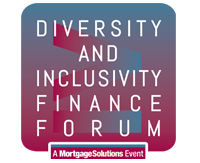
During a panel discussion at the Diversity and Inclusivity Finance Forum (DIFF) executive meeting on gender inclusion at work, a delegate asked how women could push themselves and build confidence quickly so they could go further sooner in their careers.
Averil Leimon, founder of leadership consultancy firm White Water Group, said every woman she had spoken to talked about a lack of confidence and how their own actions had decelerated their own progress.
She said there were other factors limiting their potential, but their decisions not to go for things sooner often held them back.
Leimon said confidence was a complicated thing but to build it, it was important to know your strengths, “because your strengths are all you’ve got. Whatever strengths you’ve used in the past are what you’ve got to use going forward.”
Pete Gwilliam, director of Virtus Search, said in his line of work it was obvious when he was looking at a man’s CV compared to a woman, as a woman would often use the word ‘we’ to describe responsibilities at work rather than ‘I’.
‘Going beyond the optics’
When asked about the data behind diversity within firms and how they benefitted commercially, Snéha Kilhay, managing director of Blue Tulip Consultancy, said the key thing was “going beyond the optics”.
She said it was about the values and how it is implemented into practice. Kilhay said there was a bank which had worked on being inclusive regarding gender but behind the scenes had many cases of sexual harrassment.
Kilhay said she noticed people talked about diversity and inclusion as an “intellectual garment” but said it was about the evidence and actions on what is happening. She also said it was not helpful to twist data to make a company look more diverse.
She added that it would entice potential talent if firms proved that they were inclusive.
Greater inclusivity, greater profits
Speaking from the audience, Barbara Schönhofer, founder and chair of ISC Group, said data showed that different ways of thinking made for better business solutions.
Gwilliam shared research from McKinsey which found that firms which were inclusive towards gender in senior roles tended to have higher profit margins.
He said some firms hid behind the idea that they hired on merit, adding: “Who’s determining the merit?”
Leimon said: “And are the merits being recognised in women?” She gave an example of a law firm she worked with where it was said the women who made partner brought in less money. When looking at the figures, this was found to be untrue.
She noted: “My colleague looked at where the truth was in this statement, there was none. Because if women got to partner, they were so good that they outperformed.”
Dealing with conflict
When asked how to reconcile a situation where someone was confronted for saying something offensive, the panel said, in a professional setting, the best thing to do was try to mend things.
Kilhay said the person who had the confidence to call out bad behaviour should be praised and acknowledged that this could cause tension.
Speaking about an Asian woman working in a financial services company who called a colleague out, Kilhay said: “What she’d done is held a mirror to him which said, ‘you think you’re amazing but I’m just showing you a small chink in his armour which is actually ugly’. She knows about his ugliness and that’s what causing tension.”
She said both colleagues would need to build a bridge to repair the relationship and over the time the “chink would begin to fade”.
Kilhay added that if biases were called out on a regular basis and spoken about out loud, then people would feel less uncomfortable when confronted with them.
Leimon said her organisation coached men in private to give them the opportunity to “examine their own belief structures. To imagine their biases safely – because we all have them – then challenge them.”
She said politically incorrect conversations had “gone underground” so there was less opportunity to challenge them regularly and find out where they come from. She said speaking about this in private and having safe spaces would give people the chance to undo this.
‘Challenging and unpicking one’s biases’
Gwilliam said mainstream media made inclusivity seem like a negative thing but said it was great to be vulnerable when addressing these ingrained biases.
“It’s a wonderful experience that I’ve taken myself on over the last 10 or 15 years… to challenge and unpick the biases that I have,” he added.
He said: “I’m quite aghast as to how entrenched it was through social conditioning. To go back and interrogate it is enlightening.
“I’m absolutely comfortable with being vulnerable. I think it is important part of holding a mirror up. One to yourself – certainly as a white man who wants to see change – to ask yourself about your biases.”
Gwilliam said simply asking people to qualify and explain what they mean when they make a discriminatory comment, was a soft and non-confrontational way to get them to think about what they have said and why they have said it.
He added: “It’s a really powerful way of flipping it on to that person and making them go ‘yeah, I’m the one that really needs to feel uncomfortable’.”















